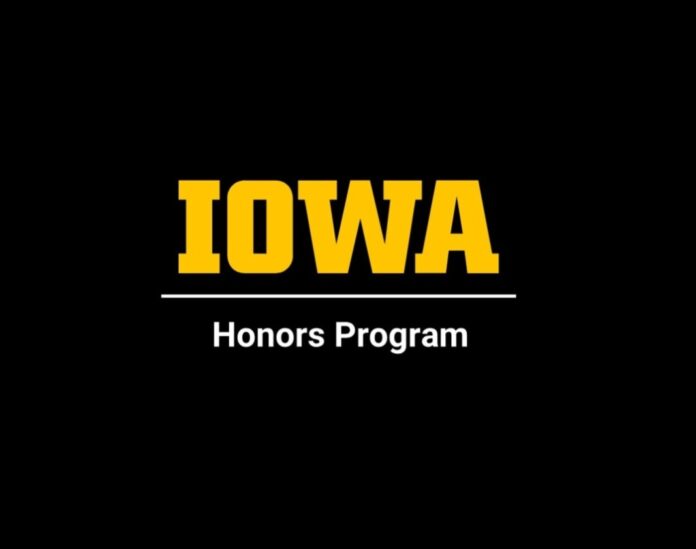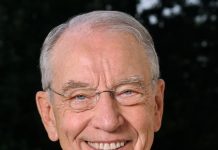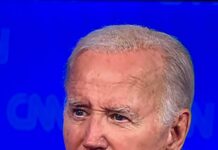A few weeks ago we told you about the University of Iowa Honors Program hosting events to help students cope with the election results. Events included:
*’Cognitive reappraisal workshop’ to “change the way you think about challenging situations.”
*’Destress yoga’ session
*’Mindfulness workshop’ with University Counseling Services
*’Listening circle’ facilitated by Sherry Watt, founder of The Being Institute
According to records, Honors Program staff began organizing various events immediately before the election, with much of the planning taking place on Election Day.
The Association Director of the University of Iowa Honors Program, Emily Hill, wrote:
“I know today and the forthcoming days will be nerve-wracking for all of us, so I thought I would put an election survival kit in the kitchen. There are sweet and salty snacks, Kleenex, ibuprofen and ‘positive energy’ tea. I also put a few containers of play dough in there in case you want to squeeze, throw or create something. Stay strong, my friends.”
As for planning the events, a person called Barry Schreier expressed some hesitation. He wrote that if you are someone who “loves existential threats, then you are living truly in a golden age.”
“But I frankly do not know anyone who likes that every (sic) much,” he wrote.
Schrier is the director of the higher education program for the Scanlan Center for School Mental Health at the University of Iowa. He is also a professor of counseling psychology.
While Schreier said the events are “great in principle,” he said that in practice they have “high potential to create its own set of fallout.”
“Hate to be a wet blanket about this, but often think encouraging people to turn to their already in place networks of support or making folks available for individual check-in should then (sic) want that has a higher probability of going well and still helps the program be fore thoughted and proactive about its awareness of impact on community members with the election and with encouraging community members to take care of themselves and those for whom they care,” Schrier wrote. On Tuesday, Nov. 5, the Student Engagement Coordinator for the program, Madison Schulte, said she doesn’t think the events would create “much of a fallout.”
Schulte thanked Schreier for his response, noting they also had similar concerns. However, the Honors Program connected with a few other offices on campus to create programming “in a way that I think will avoid the concerns and warnings you raised.”
“The only one that has potential is Sherry’s listening circle but I have all the confidence she will be able to facilitate a healthy conversation,” she wrote.
According to Schulte, Watt would guide a conversation that didn’t “truly center politics” but instead highlighted skills to “engage across difference and the idea of third-thinging.”
Once the results of the election were known, Watt said “this makes the conversation possibilities definitely more interesting perhaps.”
“Does this timing still seem relevant,” Watt asked. “If you think the timing makes sense, then I think I lean toward opening with touchstones and then asking how they might use them in their lives during this time.”
Watt wrote that one of her takeaways is “we are not telling each other the truth and we might all be performing in a way.”
“Some of us do not want to hear the truth and some of us are not telling the truth,” she wrote. “I wonder your sense of these students. Is there a mix of perspectives or is it assumed that they all voted Democratic? I ask because I am realizing that there might be some hiding happening. In other words, many young people voted for Trump according to the actual data now that we know the voting trends and that likely means there will be people who show up, who might feel like they have to perform a liberal point of view that might not have that view. Do you think this could be happening in your groups?”
Schulte responded that while she knows there are students in the program who voted for Trump, “a majority of our students are educated women, from out of state, face challenges in establishing social connections, and have expressed interest in and (sic) event like this.”
“One thing to note is that this event will be optional which I think will naturally influence who chooses to be in the space,” Schulte wrote. “I (anticipate) that next week students will be eager for the ‘now what’ conversation that may arise in a conversation about touchstones and using them at this time. Originally I thought an event about third thinging would be nice, but now that we know the results I think that may be less useful at this specific time.”
As for the events, according to records, they all counted towards the event and reflection requirement for the Intro to Honors course students.

















